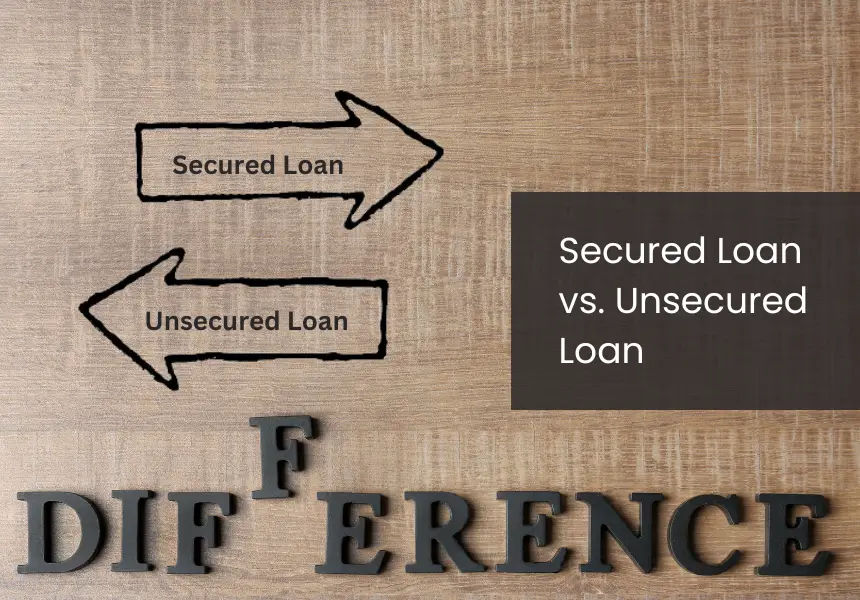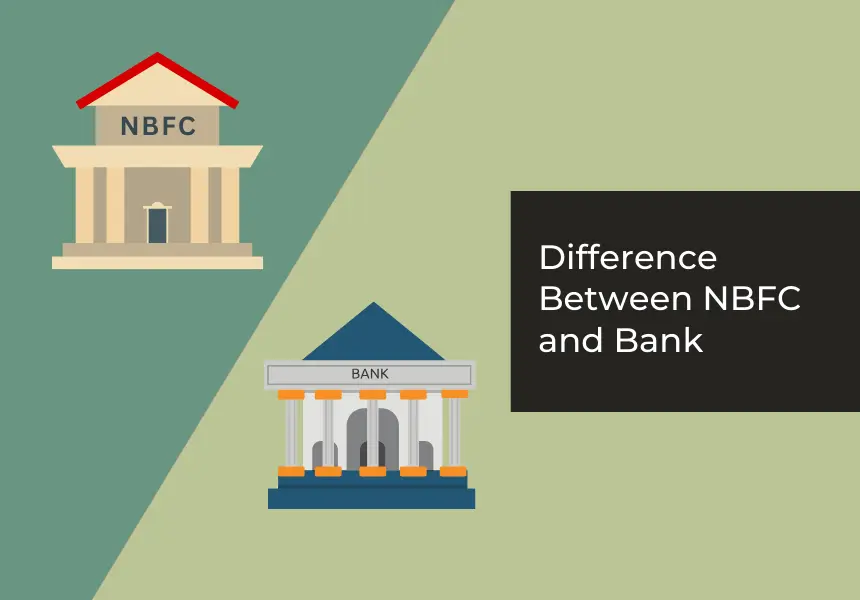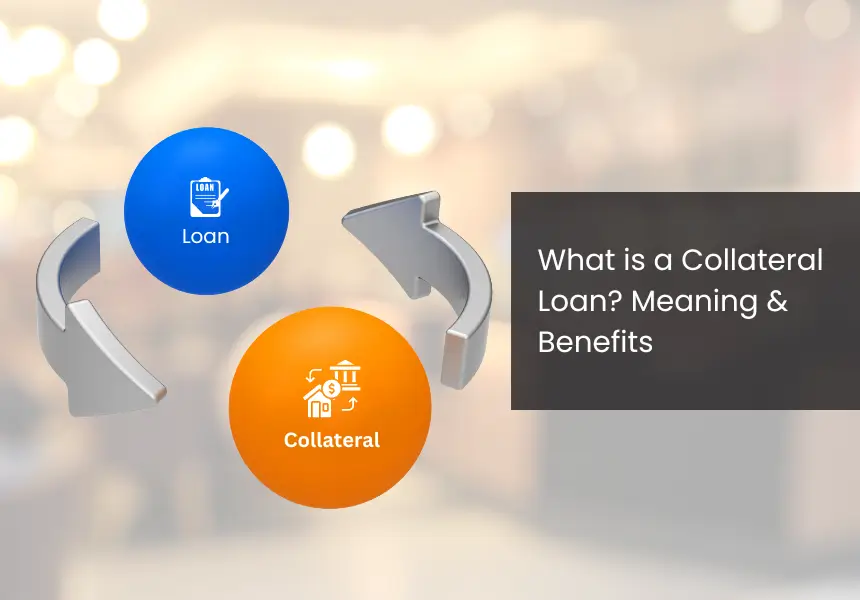
In a situation where you need quick cash, deciding which loan to go for can feel like a bit of a puzzle. Gold loans and Personal loans are two popular options that provide fast access to funds, but they work in very different ways. So, how do you choose the right one? Well, it really depends on what you’re looking for.
On one hand, you can use your gold as collateral to secure the loan, and the interest rates are usually lower since the lender has that security. On the other hand, you can opt for personal loans that don’t require any collateral, which may mean higher interest rates, and their approval depends on your credit score and income.
To help you choose the option that is the best fit for you, we’re here with the difference between gold loans and personal loans. But before jumping to the differences, we’ll first understand what is meant by gold loan and personal loan and what advantages and disadvantages they offer.
What is Gold Loan?
A gold loan is a secured loan where you pledge your gold assets, such as jewellery or coins, as collateral to borrow funds from a lender. The loan amount is determined based on the gold’s value, which is calculated considering its weight, purity, and the prevailing market price. Generally, lenders offer 75% to 80% of the gold’s market value as a loan.
Repayment terms are usually flexible and can include options like monthly installments or bullet payments, depending on the agreement with the lender. Once the loan is fully repaid, your pledged gold is returned to you. However, if you fail to repay, the lender is entitled to sell the pledged gold to recover the outstanding dues.
Pros & Cons of Gold Loans
Gold loans are a convenient and cost-effective financing option for short-term needs, especially for individuals who require quick funds. However, you must carefully assess your repayment capacity to avoid losing your assets.
Now that we have an idea of what gold loans are let’s look at the pros and cons they offer:
Advantages of Gold Loans
1. No Restriction on Usage
Gold loans can be used for any purpose, whether for personal expenses, business needs, or emergencies, making them highly versatile.
2. Quick Approval and Disbursal
Since gold loans are secured, they involve minimal documentation and lenient eligibility criteria. This often leads to loan approval and disbursal within hours.
3. Lower Interest Rates
Gold loans usually have lower interest rates compared to unsecured loans. This is because the gold you provide as collateral acts as a security for the lender.
4. Flexible Repayment Options
Some lenders may offer different repayment options, such as paying interest regularly while repaying the principal at the end or vice versa, depending on your financial situation.
5. Minimal Processing and Foreclosure Fees
Many lenders either waive processing fees or charge minimal amounts. Some may even allow prepayment of the loan without any penalty.
Disadvantages of Gold Loans
1. Risk of Losing Gold Assets
If you fail to repay the loan on time, the lender can liquidate the pledged gold to recover their money.
2. Limited Loan-to-Value (LTV) Ratio
The loan amount is capped at a certain percentage of the gold’s value, usually up to 75-80%. For example, if the gold is valued at ₹5 lakh, the maximum loan you get will be around ₹4 lakh.
3. Fluctuating Gold Prices
The value of gold is subject to market fluctuations, which can impact the loan-to-value ratio or the amount you receive.
4. Shorter Loan Tenure
Gold loans usually have shorter repayment tenures compared to other secured loans like home loans, potentially increasing repayment pressure.
What is Personal Loan?
A personal loan is a versatile financial product offered by banks, credit unions, and NBFCs. Unlike secured loans, personal loans are unsecured, which means that you do not have to pledge any collateral, such as property or other assets. The loans are provided based on the evaluation of your credit history, income, and repayment capacity.
These loans come with fixed repayment terms, usually ranging from a few months to several years, and are repaid through EMIs that include both the principal and interest amounts. Personal loans can be used for various purposes, such as medical emergencies, education, weddings, travel, home improvements, or debt consolidation.
Personal loans are an accessible option for those with a strong financial profile. These loans only require necessary documentation, and the interest rates majorly depend on your credit score, income and the lender’s terms. This makes personal loans a practical solution for meeting immediate financial needs without the complexities of secured borrowing.
Pros & Cons of Personal Loan
Personal loans can be a convenient and quick way of securing finances, and come with their own set of advantages and disadvantages. Here’s a closer look:
Pros of Personal Loans
1. No Collateral Needed
Personal loans are unsecured, meaning you don’t need to provide any assets as collateral. This makes them accessible even to individuals without significant assets.
2. Lower Interest Rates
Compared to other unsecured loans like credit cards, personal loans often come with more affordable interest rates, making them a cost-effective borrowing option.
3. Flexible Usage
Personal loans can be used for almost anything, including debt consolidation, medical emergencies, home renovations, or even travel, offering flexibility.
4. Debt Consolidation
If you have multiple high-interest debts, personal loans allow you to combine them into one manageable payment, making your finances simple and potentially reducing your overall interest.
Cons of Personal Loans
1. Fees and Penalties
Personal loans may involve processing fees, late payment fees, and prepayment penalties, which can increase the overall cost of borrowing.
2. Credit Score Reliance
Approval for personal loans, especially at favorable interest rates, depends heavily on your credit score. A poor credit score may lead to rejection or higher interest rates.
3. Stricter Eligibility Criteria
When applying for a personal loan, the lender strictly depends on factors like your employment history, income stability, and creditworthiness, making it challenging for some individuals to qualify.
4. Debt Trap Risk
If a personal loan is not managed with a clear repayment plan, it can lead to a debt trap—a situation where an individual borrows money, struggles to repay, and ends up taking additional loans or credit to cover the initial debt, creating a cycle of mounting obligations.
What is the Difference between Gold Loan and Personal Loan?
Now that we have an idea of what gold loans and personal loans are, let’s look at the difference between gold loan and personal loan
| Feature | Gold Loan | Personal Loan |
| Nature of Loan | Secured loan backed by collateral such as gold jewelry or coins | Unsecured loan, does not require any collateral and is approved based on borrowers’ creditworthiness. |
| Interest Rates | Lower interest rates, usually 7% to 12% per annum | Higher interest rates, generally 10% to 24% per annum |
| Loan Amount | Determined by the value of gold, may go up to ₹25 lakh or more | Depends on creditworthiness, ranges from ₹50,000 to ₹20 lakh and may be higher depending on the lender |
| Eligibility Criteria | Borrower must own gold and be at least 18 years of age | Borrower requires a good credit score, stable income, and employment stability |
| Repayment Tenure | Short-term, generally 6 months to 3 years | Longer, usually 6 months to 5 years, with some lenders offering up to 7 years |
| Flexibility | Funds can be used for both personal and business purposes | Can be used for diverse personal needs like education, travel, medical expenses, etc. |
How to Decide between a Gold Loan and a Personal Loan?
Now, coming to the main question, which is the better option, gold loan or personal loan?
Here’s a breakdown to help you make an informed choice:
1. Purpose and Loan Tenure
To start with, you must understand why you need the loan and for how long. Gold loans are ideal for short-term financial needs, with repayment tenures ranging from 1 to 3 years. Whereas personal loans can be opted for both short and long-term needs, as tenures can extend up to 7 years, depending on the lender.
2. Loan Amount
Next, you must factor in how much loan amount you require. Gold loans generally have an upper limit depending on the value of your gold. Personal loans offer higher borrowing limits, usually up to ₹10 lakhs or more, making it a better choice if you need a substantial amount.
3. Interest Rates
The interest rate on your loan can significantly affect your total loan repayment amount. Since gold loans are secured by collateral, they come with lower interest rates. Conversely, since personal loans are unsecured, they tend to have comparatively higher interest rates. If your priority is to minimize the interest payments and are willing to pledge your gold asset as collateral, a gold loan might be more economical.
4. Eligibility and Credit Score
To be eligible to apply for a gold loan, you need to be of legal age, own gold for collateral and may have to provide income proof. On the other hand, a personal loan requires a stable income and a good credit history for approval.
Essentially, you must evaluate your requirements, compare offers, and consult with your lender to select the loan type that aligns with your financial goals.
Conclusion
Gold loans and personal loans offer unique benefits. Gold loans are ideal for those who can pledge assets, while personal loans are versatile, requiring no collateral and suiting various personal expenses like medical emergencies, weddings, or travel. However, choosing the right loan depends on your specific situation, repayment capacity, and whether you prefer secured or unsecured borrowing.
If an unsecured, hassle-free solution sounds like the better option for you, LoanTap’s personal loans are the ideal choice. With minimal paperwork, competitive interest rates, and quick disbursals, LoanTap offers loan amounts up to ₹10 lakh, making managing your finances simple and stress-free. No collateral, no complications, just a loan customized to your needs.
Frequently Asked Questions
Can I foreclose a gold loan or personal loan?
Yes, you can foreclose both, but lenders may charge a foreclosure fee. Check the terms before applying.
What is the maximum amount I can get for a gold loan vs personal loan?
The maximum amount for a gold loan depends on the value of your gold, whereas personal loans are determined by your creditworthiness and income.
Do gold loans always have lower interest rates than personal loans?
Generally, yes. Gold loans often have lower interest rates, but personal loans may also offer competitive rates if you have a high credit score and stable income.
Gold loan or personal loan: Which is better for salaried individuals?
Personal loans are better suited for salaried individuals due to their unsecured nature and fixed monthly EMIs.








